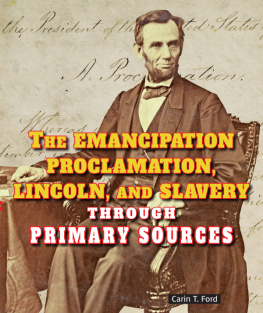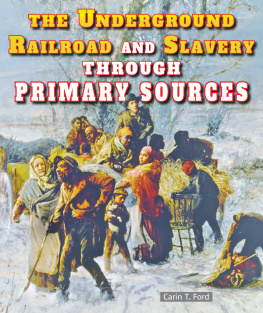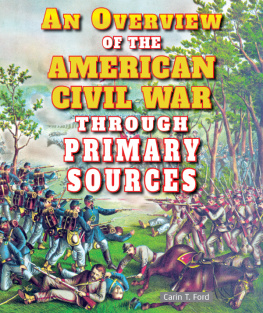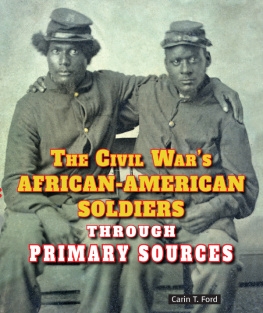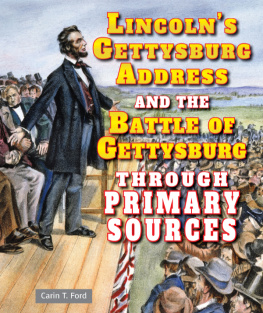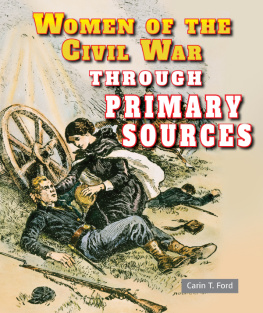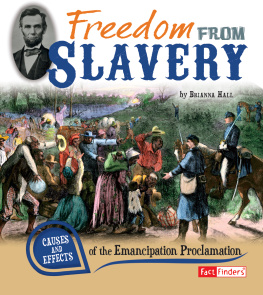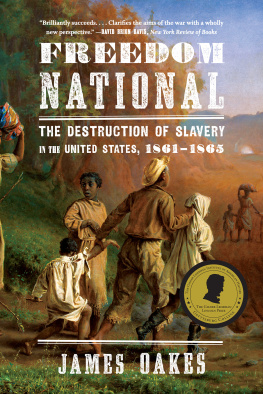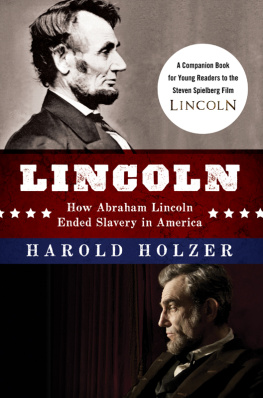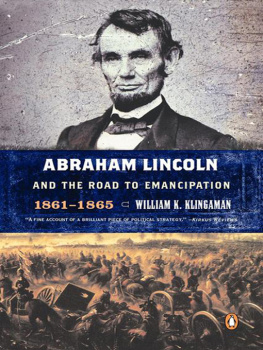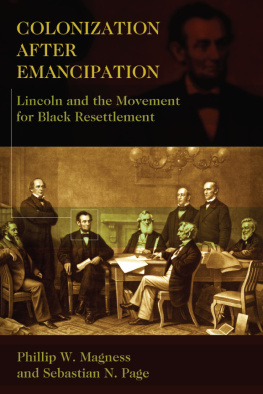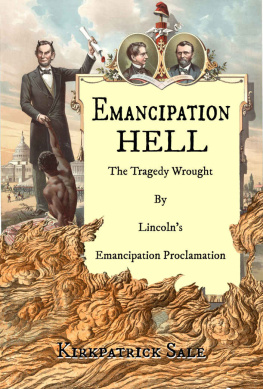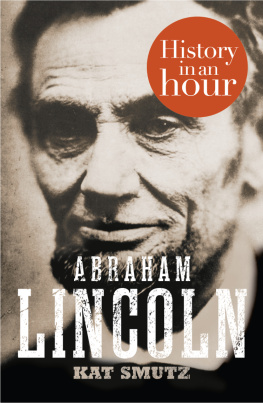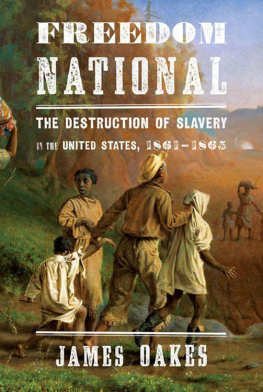If Slavery Is Not Wrong, Nothing Is Wrong
When Abraham Lincoln said this, many Americans did not agree. Most of them lived in the South, where their economy depended on slave labor. In 1861, the year Lincoln became president, the conflict over slavery became a war between a divided nation. Although the Civil War was fought to reunite that nation, Lincoln eventually saw the greater cause: ending slavery forever in the United States. In striving to achieve this ultimate goal, President Lincoln took the most important stepthe Emancipation Proclamation.
About the Author
Carin T. Ford has been writing professionally for more than twenty-five years, including many books for Enslow Publishers, Inc. In addition to writing, she teaches English and journalism at colleges in the Philadelphia area.

Image Credit: National Archives and Records Administration
For nearly 250 years, African Americans were forced to work as slaves in the United States. Slaves received no pay and suffered under the cruelest conditions. In this photo, Gordon (no last name given), a slave from Mississippi, shows the scars from beatings he received.
If slavery is not wrong, nothing is wrong. When Abraham Lincoln wrote these words, Americans were bitterly divided over slavery. For nearly 250 years, black slaves had worked hard on farms and plantations, mainly in the South. Slaves were bought and sold like property. Their owners did not pay them for their work. Many slaves were beaten with whips and given little food or clothing.
The businesses, factories, and small farms of the North did not need slave labor, and many Northerners had come to believe that slavery was wrong. They wanted to put an end to it. The large plantations of the South depended on the work of slaves, and most Southerners wanted to keep slavery. As president, Lincoln did more than anyone before him to free the 4 million black slaves from their chains.

Image Credit: Library of Congress Prints and Photographs
Abraham Lincoln first witnessed the brutality of slavery growing up near the Cumberland Trail. This is an 1868 illustration of young Abraham reading in his log cabin.

Image Credit: Library of Congress Prints and Photographs
Slaves wearing handcuffs and shackles pass through Washington, D.C., around 1815. The journey of blacks from Africa to the slave market in North America was extremely harsh. Many died along the way. Once slaves arrived in America, their treatment did not improve.
Lincoln was born February 12, 1809, near Hodgenville, Kentucky. He came from a poor family of pioneers. They moved often, throughout the West.

Image Credit: Library of Congress Prints and Photographs
In this 1862 photo, African-American slaves work in a pile of cotton, preparing it for the cotton gin at Smiths plantation in Port Royal Island, South Carolina. The thriving cotton industry demanded more and more slave labor.
Lincoln grew up near the Cumberland Trail, which ran from Louisville, Kentucky, to Nashville, Tennessee. Pioneers, preachers, and peddlers made their way along the trail. There were also slaves, tied together by the hands and feet, traveling on the trail. This is probably where young Abraham Lincoln saw slaves for the first time.
The first African slaves were brought to America in 1619. Traders from Europe made a lot of money selling slaves. Men, women, and children were kidnapped in Africa, chained, and shipped across the Atlantic Ocean to America. Millions died on the long journey across the sea. Through the years, the number of slaves in America grew slowly.
That suddenly changed when Eli Whitney invented the cotton gin in 1793. The machine removed the seeds from cotton. With a machine doing the work instead of a person, farmers could now clean fifty times more cotton each day.
Southern farmers could make a great deal of money selling this crop. Many of them quickly switched to growing cotton. More slaves than ever were needed to work in the fields, planting and picking cotton.

Image Credit: Library of Congress Prints and Photographs
The cotton gin, shown in this 1823 illustration from the publication American Farmer, forever changed slavery in the South.
By 1830, the number of slaves had climbed to more than 2 million, and slavery had become a major part of life in the United States.
In 1828, Abraham Lincoln traveled on a flatboat down the Mississippi River to New Orleans, Louisiana. The boat was carrying farm products to market. As legend tells the story, Lincoln, age nineteen, now got a closer look at slavery. Slaves in chains were being whipped. Black men, women, and children were being sold like cattle at auctions. Lincoln began to feel a deep hatred of slavery.
Lincoln was not the only one in the country who felt strongly about slavery. Mostly in the North, there were many people who wanted to abolishor put an end toslavery. They were called abolitionists.
William Lloyd Garrison was an abolitionist who published an antislavery newspaper. He called it The Liberator. The word liberate means to set free.
I will not retreat a single inchand I will be heard, wrote Garrison in the newspapers first issue. Garrisons voice was heard for the next thirty-five years. He also spread his views by helping form the American Anti-Slavery Society in 1833. Members of the society gave speeches and wrote newspaper and magazine articles calling for an end to slavery.
Many people in the South were angry about these antislavery groups. Southerners asked the Northern lawmakers to put a stop to them. People in the South did not want slavery to end. The cotton industry needed slaves.
Lincoln was a member of the Illinois House of Representatives at this time. In 1837, Illinoiss lawmakers voted to stop antislavery activity. Only six lawmakers voted in favor of the abolitionists. Lincoln was one of them. He wrote that slavery was based on injustice and bad policy. Still, he said that Congress did not have the power to end slavery in states where it already existed. It was the first time Lincoln spoke out in public against slavery. But it was far from his last.

Image Credit: Library of Congress Rare Books and Manuscripts Division
William Lloyd Garrison, an abolitionist, founded the anti-slavery newspaper, The Liberator, in 1831. His outspoken views against slavery were not received well in the South.


